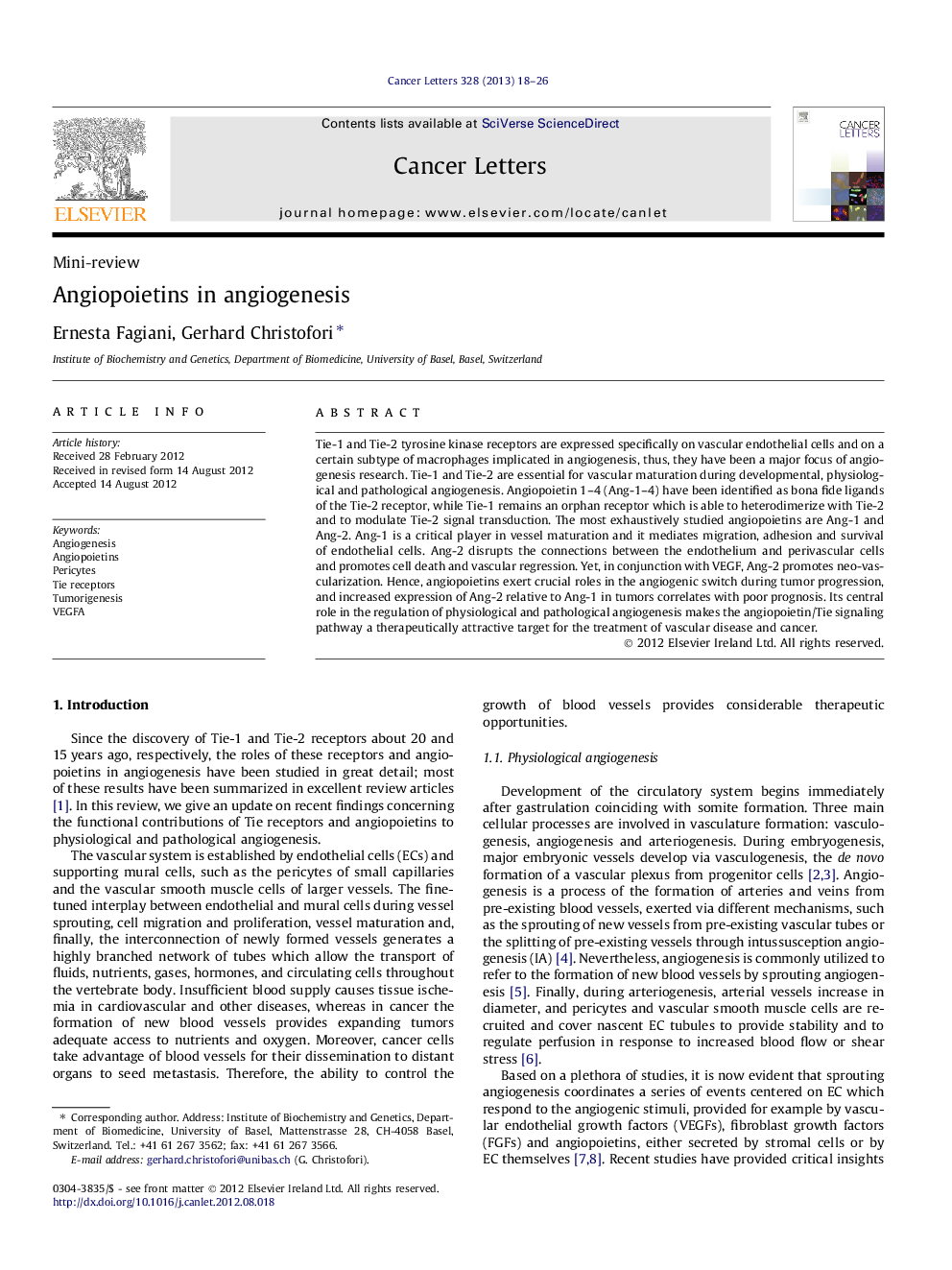| Article ID | Journal | Published Year | Pages | File Type |
|---|---|---|---|---|
| 2116317 | Cancer Letters | 2013 | 9 Pages |
Tie-1 and Tie-2 tyrosine kinase receptors are expressed specifically on vascular endothelial cells and on a certain subtype of macrophages implicated in angiogenesis, thus, they have been a major focus of angiogenesis research. Tie-1 and Tie-2 are essential for vascular maturation during developmental, physiological and pathological angiogenesis. Angiopoietin 1–4 (Ang-1–4) have been identified as bona fide ligands of the Tie-2 receptor, while Tie-1 remains an orphan receptor which is able to heterodimerize with Tie-2 and to modulate Tie-2 signal transduction. The most exhaustively studied angiopoietins are Ang-1 and Ang-2. Ang-1 is a critical player in vessel maturation and it mediates migration, adhesion and survival of endothelial cells. Ang-2 disrupts the connections between the endothelium and perivascular cells and promotes cell death and vascular regression. Yet, in conjunction with VEGF, Ang-2 promotes neo-vascularization. Hence, angiopoietins exert crucial roles in the angiogenic switch during tumor progression, and increased expression of Ang-2 relative to Ang-1 in tumors correlates with poor prognosis. Its central role in the regulation of physiological and pathological angiogenesis makes the angiopoietin/Tie signaling pathway a therapeutically attractive target for the treatment of vascular disease and cancer.
► Angiopoietins and their Tie receptors are critical for vessel homeostasis and angiogenesis. ► Ang-1 induces vessel maturation. ► Ang-2 cooperates with other angiogenic factors in the induction of sprouting angiogenesis. ► Ang-2 appears to antagonize Ang-1 function by preventing its binding to Tie-2 receptors. ► Tie-1 heterodimerizes with Tie-2 and antagonizes Ang-1-mediated vessel maturation.
